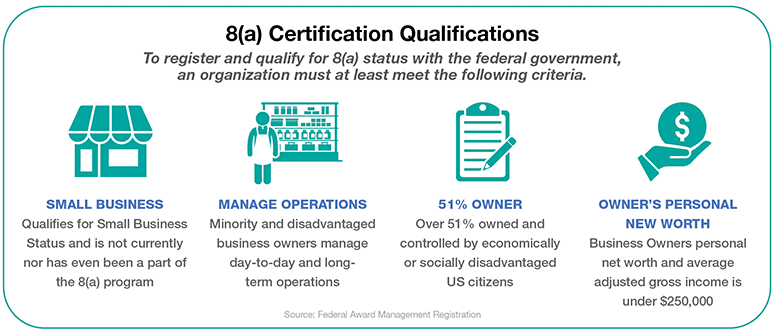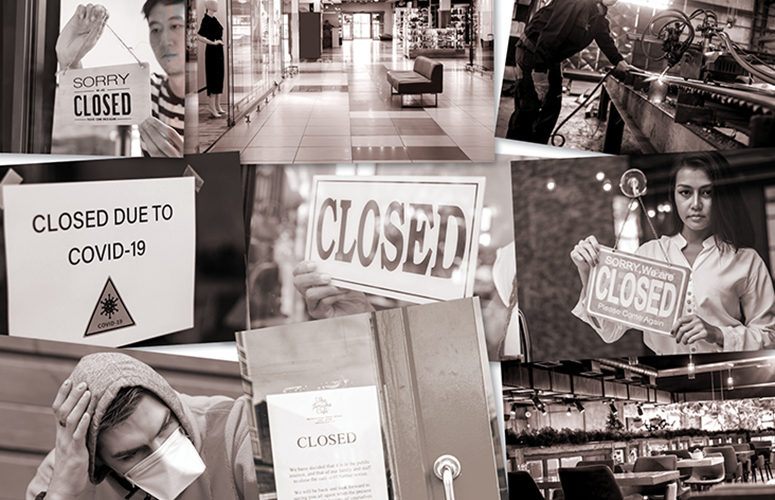
Procurement Possibilities for Minority-owned Businesses
With the federal government being the largest purchaser of goods and services in the world, prospects abound for minority small business owners to take advantage of contracting opportunities.
By Anthony Birritteri, Editor-in-Chief On Sep 17, 2021Procurement opportunities are abundant for women and minority-owned businesses. However, when it comes to seeking contracts with federal, state, county or municipal governments, large companies, school systems, and more, “You have to be out there [bidding on contracts], or you don’t exist,” says Andrew Bennett, procurement consultant for the New Jersey Small Business Development Centers (NJSBDC).
“That’s the first thing I tell businesses that come to me,” says the procurement specialist who has more than 50 years of industry experience.
Second, Bennett advises women and minority-owned firms to obtain state, federal and organizational certifications to qualify for set-aside programs in the public and private sectors.
At the federal level, this includes getting certified in the US Small Business Administration’s 8(a) program for women and minority-owned small business owners who are socially and economically disadvantaged. The federal government must award 5% of its contracts to businesses with the 8(a) certification. There is also a Women-owned Small Business (WOSB) certification under the SBA.
The US Department of Transportation provides the Disadvantaged Business Enterprise (DBE) certification for women and minority-owned businesses, or other socially and economically disadvantaged individuals, including people with disabilities.
Then, there is the Women Business Enterprise (WBE) certification with the Women’s Business Enterprise National Council (WBENC), a private third-party that certifies women-owned businesses on behalf of US corporations. City, county or state programs may also look for WBE certification.
Additionally, on the national level, there is the Minority Business Enterprise (MBE) certification with the National Minority Supplier Development Council, a private third-party that certifies minority-owned businesses on behalf of US corporations. City, county or state programs may also look for MBE certification.
Meanwhile, the state of New Jersey offers:
Small Business Enterprise (SBE) certification program: Puts all small businesses, regardless of minority group or gender status, under one umbrella – small business – for its 25% set aside program.
Veteran-owned Business (VOB) and Disabled Veteran-owned Business (DVOB) certification.
Minority and/or woman owned business or enterprise (M/WBE) certification: For businesses that want to obtain work with local government entities.
ESBE program: A race- and gender-neutral program designed to provide select contracting opportunities to small, economically disadvantaged businesses. This program runs concurrently with the Disadvantaged Business Enterprise (DBE) program on federally funded projects.
More information on these certifications can be found on the state’s portal: www.business.nj.gov/pages/certifications
Why is it important to get certified and participate in federal government contracts? According to Donald Newman, manager of small business advocacy at the New Jersey Business Action Center (NJBAC), it’s because “the US government is the largest purchaser of goods and services in the world.”
For example, the SBA recently announced that the federal government exceeded its small business federal contracting goal for fiscal year 2020, awarding 26.01% or $145.7 billion in federal contract dollars to small businesses, a $13-billion increase from the previous fiscal year.
However, it also seems as if money is being left on the table when it comes to taking advantage of federal procurement opportunities. According to information provided by the Federal Award Management Registration (FAMR) website, there were not enough 8(A) small businesses to take part or apply for contracts in 2018, “leaving plenty of valuable contract opportunities to simply gather dust.”
For example, of the $71.5 billion reserved for 8(A) small businesses in 2018, only $29.5 billion of those work opportunities were claimed. That meant that nearly 1-in-3 federally available 8(A) contracts went to waste.
So, opportunities exist, but Raul Mercado, statewide director of the New Jersey Institute of Technology Procurement Technical Assistance Center (NJIT-PTAC), says that when it comes to supplier diversity, “women and minority-owned businesses have not been included in the entire process, that process being: How do you conduct market research; how do you prepare yourself to respond to a request for proposal (RFP); what are the different state and federal regulations to adhere to? … The process quickly gets convoluted and confusing.”
Luckily, organizations such as the NJSBDC, NJBAC and the NJIT-PTAC as well as the UCEDA-PTAC, which serves Union County (the NJIT-PTAC serves 20 New Jersey counties), provide one-on-one counseling, technical assistance, webinars and more to these minority groups.
Additionally, while the state no longer has a set aside program for women and minority-owned businesses (it was abolished in 2003 following a disparity study and court injunction regarding reverse discrimination, according to Bennett), the Office of Diversity & Inclusion within the State Treasury Department, created by the Murphy administration, is reaching out and working with women and minority-owned, veteran-owned and LGBT-owned businesses and making sure state agencies have “an accountable measure of performance and centralized processing in order to create a greater environment that utilizes [these businesses] in state procurement,” says NJBAC’s Newman.
“This is the way we support minority businesses in government procurement. It is not the exclusive contracts you get with a set-aside program, but it is still a program designed to encourage these businesses to participate in procurement,” Newman says.
It is important to state again that county and municipal governments, plus certain agencies that are partly funded by the federal government, do have set-aside programs for women and minority-owned businesses. This includes, for example, the New Jersey Department of Transportation and the Port Authority of New York & New Jersey.
Additionally, minority-owned businesses cannot overlook large companies and their respective offices of supplier diversity for contract work. Many of these large companies may be prime contractors for government agencies and are in need of subprime contracting partners.
Mercado explains that government agencies may have “flow down” goals, meaning that in order to meet their set-aside requirements, they will require their large prime vendors to, if needed, hire minority and women-owned businesses as subcontractors.
Additionally, Newman explains, “There are a lot of private-sector companies that want to be good corporate citizens and they are recognizing that having a diverse vendor pool is good for their business and the business community as a whole. So, there are opportunities for supplier diversity.”
With more businesses attuned to diversity, equity and inclusion (DEI) in all facets of their operations, will there be more contracting opportunities for minority-owned businesses owners? Mercado says the DEI movement has “made a lot of noise. That is good because there has been a lack of equity in the supply chain for many years. Now with DEI, it seems as if many organizations, whether public or private, are all getting into it.
“My concern is that it’s not just a fad. Some organizations are going to take this opportunity to market themselves. … On the flip side, other organizations are going to dig in and change their policies and procedures and the way they do business,” he says.
Businesses and government seem to be doing the right thing when it comes to procurement and supplier diversity. While the process of submitting the RFXs (request for proposals (RFP), Request for Information (RFI), Request for Quote (RFQ), and Request for Bid (RFB) may be challenging, the experts in this article and the agencies they represent stand ready to assist minority-owned small businesses with one-on-one counseling, webinars and seminars, and procurement databases, including bid-matching services, and more.
NJSBDC’s Bennett perhaps best sums up the work of these groups when he says, “I take what I do very seriously in order to help small businesses reach the next level.”
NJ Procurement Assistance Websites
To access more business news, visit NJB News Now.







